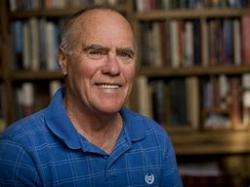Every Olympics has memorable moments made famous by the news media or by each observer. The just-completed Paris Olympics is no exception, and for me, there are several nominees for the “most memorable moment.”
Yet, as soon as I begin to go down that path of memory, I realize this: it is futile because how do you compare one great moment to another? How do you compare the lifting of a massive amount of weight by a young woman from Tennessee … to a 16-year-old running a leg of a relay … to a pole vaulter soaring over twenty feet … to a runner winning or even placing for a medal … to a twenty-year-old female winning gold in freestyle … not to mention to whatever you can add?
To do so is rather like using the modifier “very” to make something appear better, as in “The jumper was very good.” That, in my view, is cheap praise. And most “most memorable moments” are from the winner of an event because that is what we are wired for—the Gold medal.
But often, especially in competitions, it is not the winner who shines the most but the silver or bronze winners, or the athlete who places 4th just missing a medal, or the competitor who sets a PR, or the one who shows grace and humility no matter his or her position.
Here’s one great example. Takatani Daichi wrestles for Japan in the 74 Kg (163.1420) weight class. He was seeded #4, meaning he had to wrestle the formidable American Kyle Dake in the semi-finals, who was seeded #1. He not only wrestled the defending champion, but he scored 20 points and won by 8. He was on to the finals to wrestle for gold against Uzbekistan’s Razambek Salambekovitch Jamalov. But then, his quest for gold ended in 2 minutes and 12 seconds. Jamalov caught him in a cradle for a pin, and the shocked Japanese wrestler knelt in disbelief on the mat. His coach’s appeal was denied, and the match official had to motion for the stunned wrestler to rise and walk to the center of the mat to raise Jamalov’s hand.
A trained athlete and humble person, Takatani did as he must. He returned to the center of the mat, waiting for the official to raise Jamalov’s hand. But before that happened, he wrapped his arms around Jamalov’s thighs and lifted him for the crowd to cheer. Then the official raised his hand, and the wrestlers embraced in mutual respect for each other and their sport.
It seems to me that this moment and others like it demonstrate what the spirit of competition should be. Takatani made a mistake, and Jamalov capitalized on the error to win. Takatani’s surprise and disappointment were evident, but he rose to celebrate with Jamalov, being a better person than a wrestler (and showing how good he was against Dake).
There are many possibilities in the Paris Games for “best” of any category. However, as you make your choice (and we all have), consider the grace, courage, and humility it took to create your favorite.














